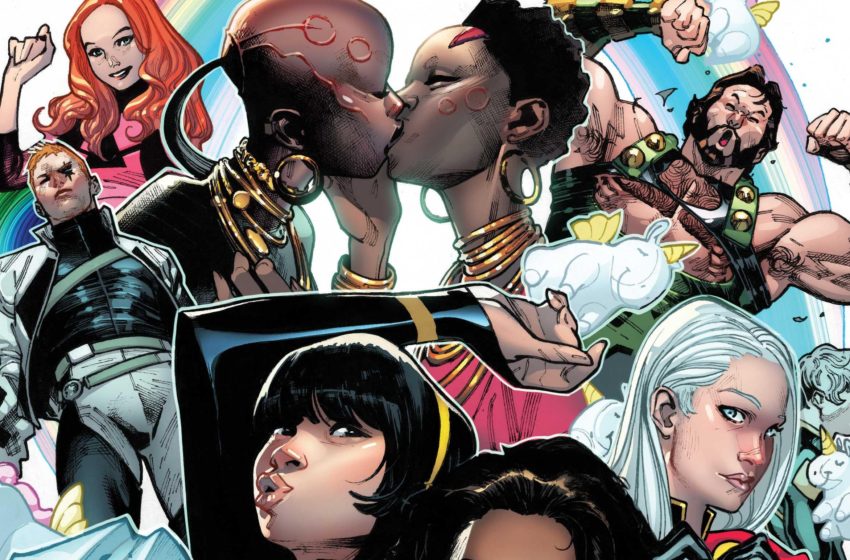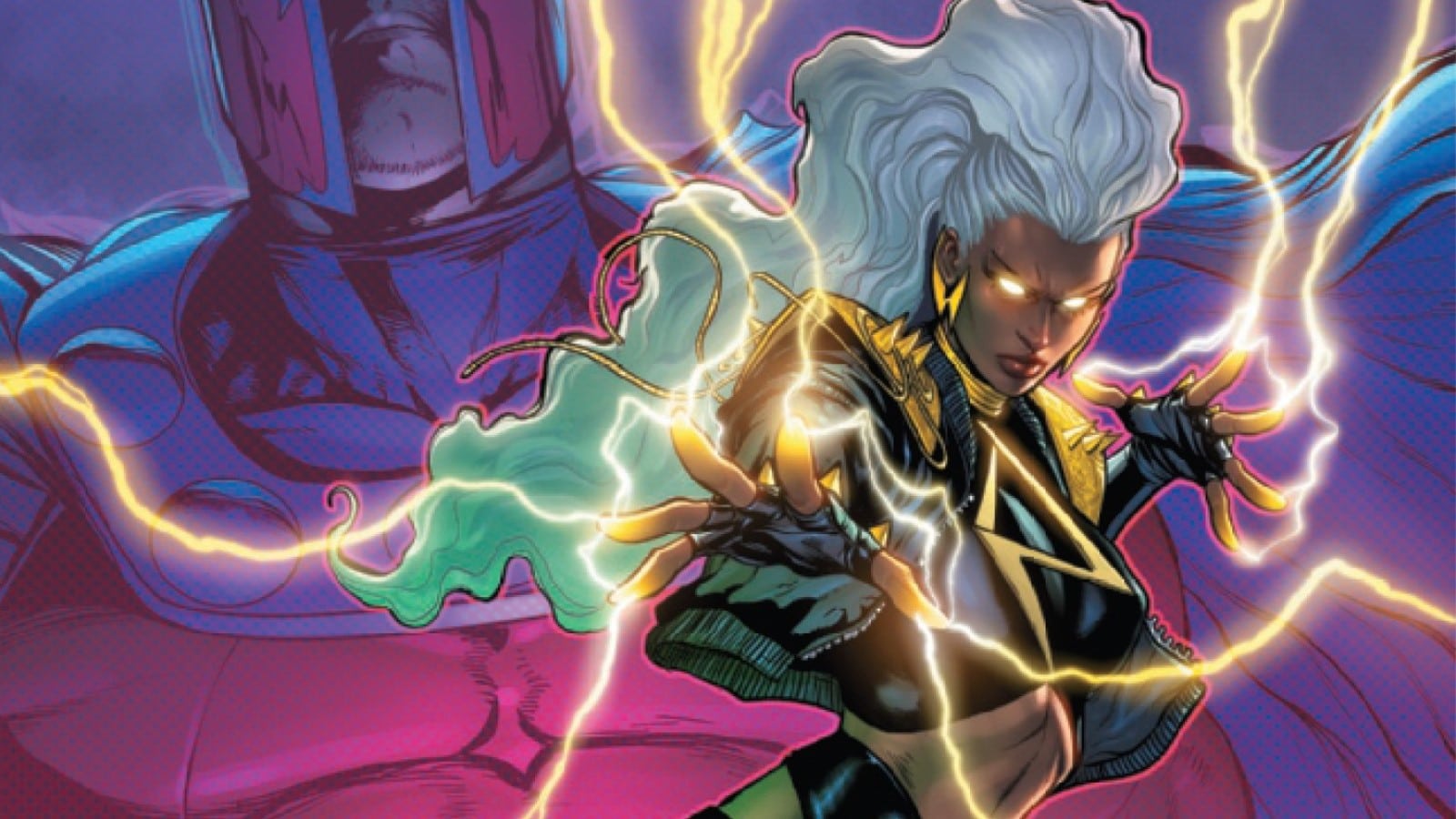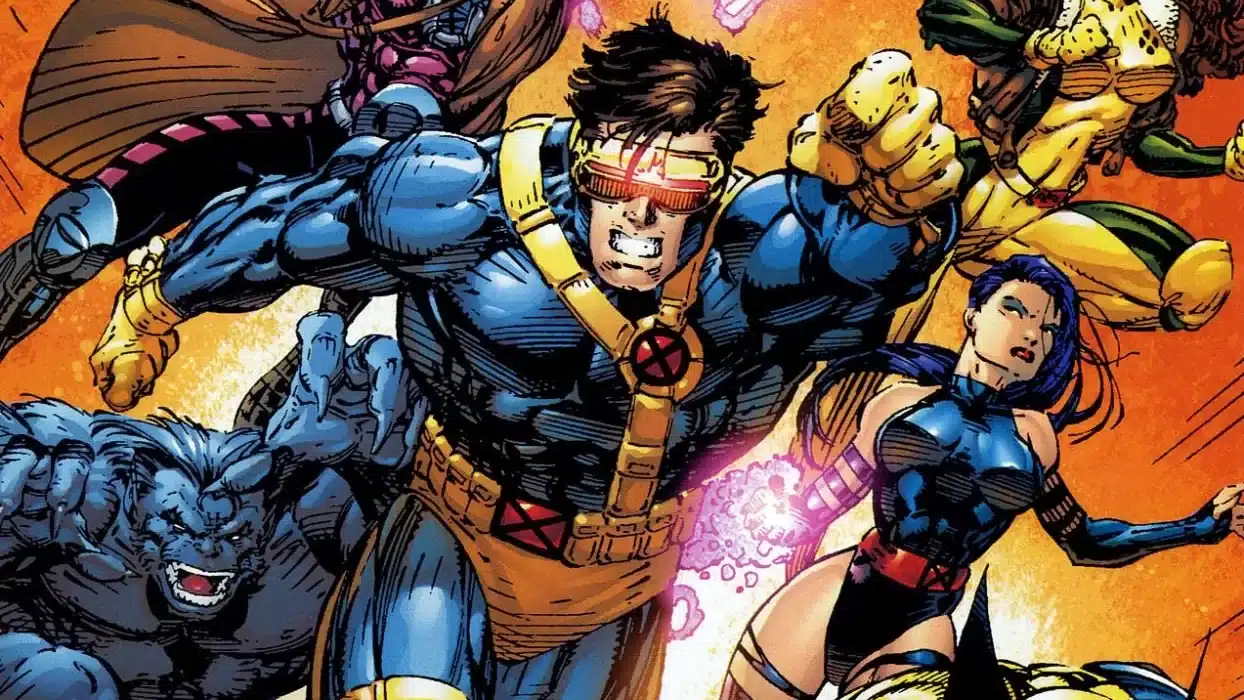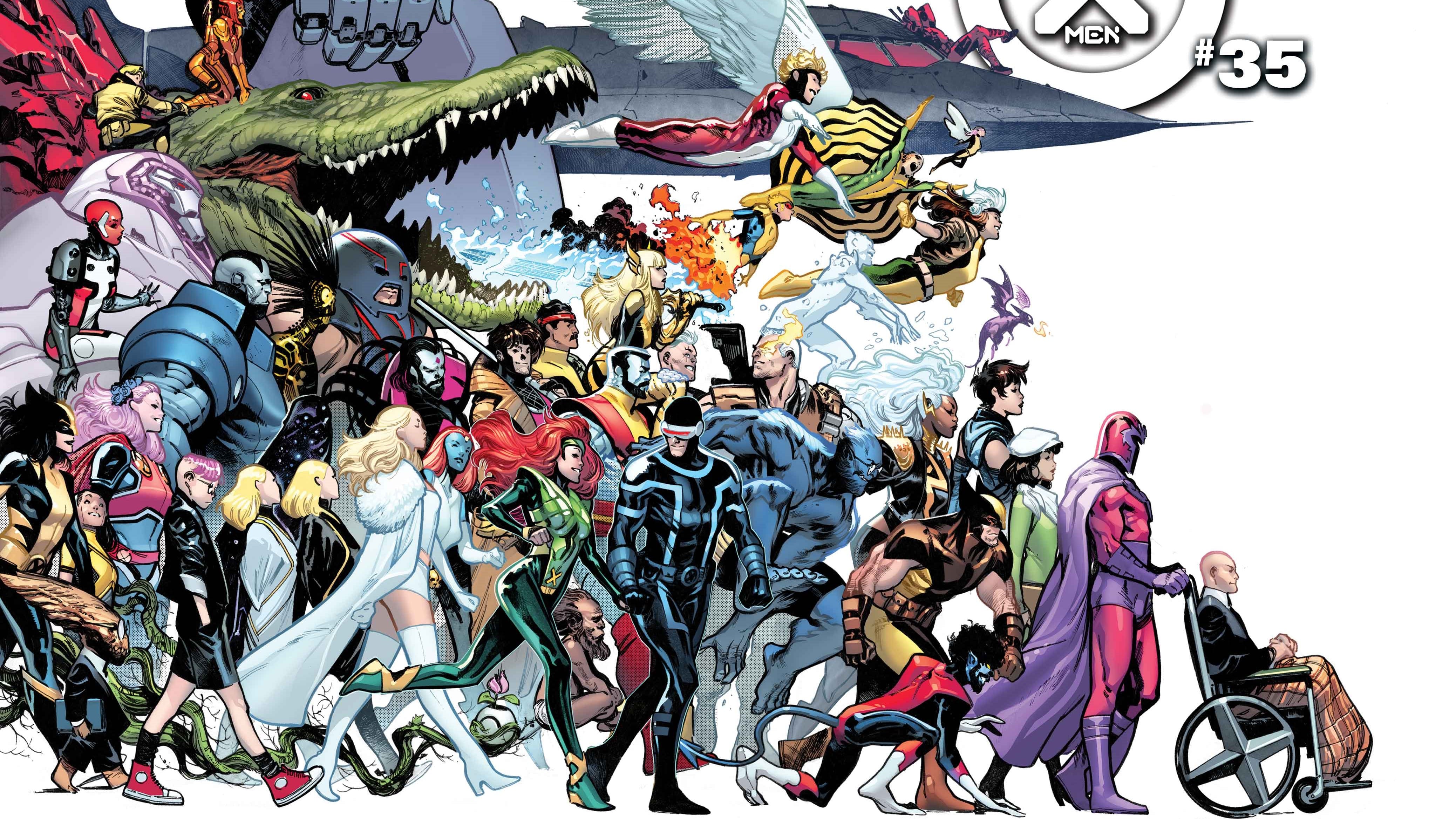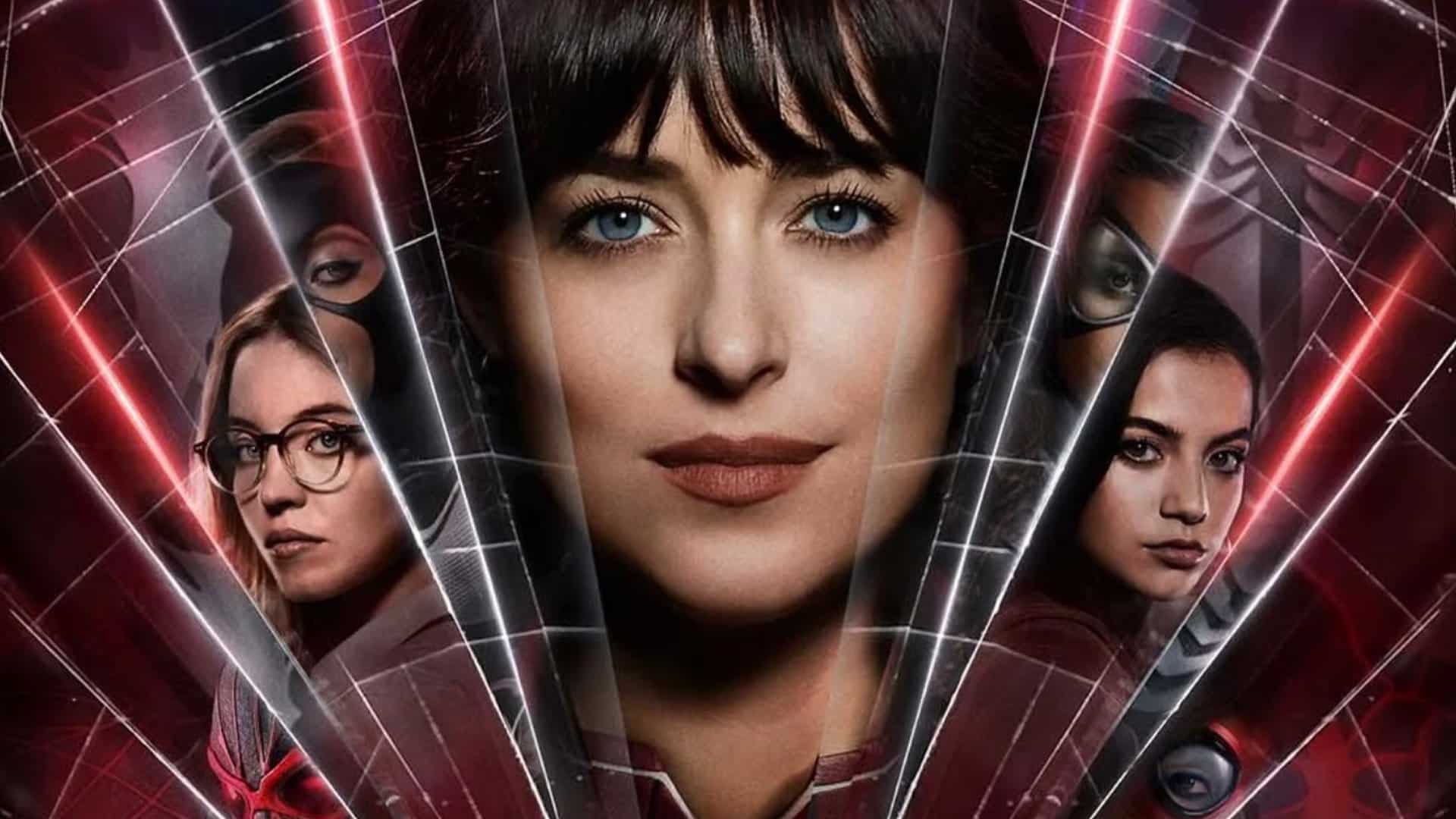Loki should be one of, if not the, most prominent queer characters in Marvel’s roster. While not yet on the silver screen, within the pages of Marvel Comics Thor’s brother is not just bisexual, sometimes she is Thor’s sister. An openly genderfluid character whose personal identity shifts nearly as much as her loyalties. With a high profile Disney+ show on the way and a decade-long tour through a half-dozen MCU films, he’s easily the most recognizable genderfluid character in comics and would be a no-brainer to be front and center on Marvel’s LGBTQIA+ Pride efforts this year, given the show’s June 9th launch date releasing it in the middle of Pride. Yet until May 13th, Loki was nowhere to be found on a single cover, variant or otherwise, for Pride Month and notably absent from the massive ensemble variant, drawn by Luciano Vecchio, of their Marvel Voices: Pride anthology special, featuring every significant queer character Marvel has in its roster. Or so it seemed.

On May 13th, 2021, Twitter user @616bradley posted a comparison of the Voices cover released by Marvel to a piece of art reportedly from Vecchio’s Instagram story, featuring Loki standing next to America Chavez on the cover where there is only a conspicuous blank spot on the officially released version.
wait…. then why wasn’t loki in the final cover? pic.twitter.com/RJIN6uAYHQ
— bisexual eli braldey (@616bradley) May 13, 2021
Following this discovery, Marvel released an updated version of the Voices cover in the late evening of May 13th, with Loki restored, as well as a preview showing Loki included alongside a group of trans and non-binary characters within the issue itself. While Loki’s inclusion within the issue (albeit using a design that Loki sported while he was stealing another’s body rather than her genuine form from other series) is a good thing, it doesn’t change the initial erasure. The original press release version, without Loki, is the version most people will see. It turns up when you do a Google search and will almost certainly have a further reach than this updated cover thanks to the nature of search algorithms. The decision to remove Loki from that release, for whatever reason, is an inherent problem that including him on the cover after the fact doesn’t address.

The start-stop nature of embracing Loki’s genderfluidity is nothing new, having initially been introduced during JMS and Olivier Coipel’s Thor (revealed in Thor (2007) #8 to simply be Loki possessing Lady Sif’s body as part of a villainous plot rather than genuinely presenting as a woman) and later officially confirmed during Al Ewing and Lee Garbett’s Loki: Agent of Asgard #14. The Asgardian god had always relied on shape-changing and a shifting sense of self, but explicit textual confirmation that Loki saw themself as both man and woman, never committing to just one form or identity, was a massive moment of visibility for an underrepresented group in comics, even if it was through the lens of a shape-shifting God rather than a genderfluid human. Following that win, however, Loki’s status has remained disappointingly rigid.
While the Vote Loki miniseries did showcase her fluid identity, the bulk of Loki’s appearances in the several years following Agent of Asgard have been in the very familiar, Tom Hiddleston-esque roguish figure he’s sported for decades. Whether appearing in his own series or guest starring in others, Loki has remained overwhelmingly male and rarely embraced the identity found years before. Likewise, Marvel’s embrace of the character’s genderfluidity has remained shallow. Following Agent of Asgard’s celebration of Loki’s identity (the final arc of the title features an exclusively female Loki) the actual nature of his identity as genderfluid has been shed for a more bland Generically LGBTQ role, with even the commitment to embracing that being thrown into question by his initial erasure from the Voices variant.

Loki’s bizarre cover treatment isn’t the only notable mishap in Marvel’s 2021 Pride celebration, however. Two prominent recently queer characters are also nowhere to be found. Kate Pryde finally paid off on decades of subtext by kissing another woman in Marauders #12 last year, but after a complete lack of follow-up since, she couldn’t even make it onto the Pride variant of her own series. Similarly, Star-Lord found himself as part of a loving poly triad, including another man, in Guardians of the Galaxy (2020) #9 yet he isn’t on a single ensemble cover or variant. It is worth noting that, unlike Loki, both of these characters did not have explicit confirmation of their identity. Kate Pryde kissed a woman but never said she was bi. Star-Lord was shown to be married with children and lovingly embraced both his partners, but never specified his sexuality in the text. Paired with Loki’s confusing exclusion and delayed reveal from at least one cover, even though she was within the issue itself, an unfortunate pattern of quiet erasure has formed in Marvel Comics.
Erasure is nothing new for the company, Betsy Braddock, then Psylocke, infamously had her identity as a bi woman (something confirmed in explicit detail in Uncanny X-Force (2013) #7 and #8) utterly ignored to this day, and Hercules (who is now officially bi thanks to Guardians of the Galaxy (2020) #6) was once aggressively proclaimed to be straight by then-Editor-in-Chief Axel Alonso despite prior stories painting the Olympian as queer. As the Marvel Cinematic Universe continues to dominate the media landscape and Disney scrutinizes every IP under their ownership to ensure they provide the most mass-market content possible, the ceiling that has formed is impossible to ignore. A-List movie stars big-name heroes are never queer, and especially not trans or otherwise gender-non-conforming, only the supporting heroes. The B and C-Listers. When Loki was confirmed as genderfluid, he was a supporting MCU player. The co-star of Thor movies, a one-time Avengers villain and little else. Now that he’s leading his own multi-million dollar show, suddenly that identity is no longer worth centering, it seems. While it is impossible to know the exact reason Loki was removed from the Voices cover, it is hard to ignore the restoration occurring only after his absence was discovered by fans.
Pride should be a celebratory month for LGBTQIA+ folks, and for many it still is. But with corporations increasingly cashing in on the movement while assaults on queer lives, like the recent wave of anti-trans bills across America it is hard to feel like celebrating. That doesn’t mean that Voices should be shunned, dozens of talented queer creators are showcased and that alone is something special. But when many of those creators have no other work with the publisher beyond those short stories, major characters’ identities are quietly being ignored and the only prominent genderfluid character in Marvel’s catalog is removed from a variant cover meant to celebrate the strides that have been made…well, something’s gone wrong and needs to change.
Zoe Tunnell is a 29-year old trans woman who has read comics for most of her adult life and can't stop now. Follow her on Twitter @Blankzilla.

